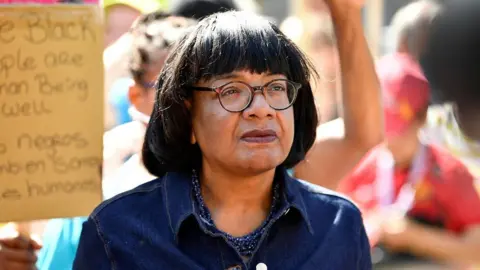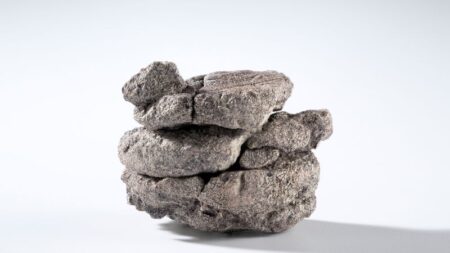In a recent development that has garnered significant media attention, MP Diane Abbott has been temporarily suspended from the Labour Party following remarks she made regarding racism. The news came to light as the BBC reported that the party has initiated an investigation into Abbott’s comments, which have raised eyebrows and sparked critical reactions. As a consequence of her suspension, Abbott will serve as an independent MP, commonly referred to as “losing the whip,” which denotes her disaffiliation from the party in light of this ongoing inquiry.
The suspension follows Abbott’s appearance in a BBC interview wherein she made a contentious statement: “I just think that it’s silly to try and claim that racism which is about skin colour is the same as other types of racism.” This assertion has drawn considerable criticism, reflecting varying perspectives on how racism is understood and contextualized within contemporary discourse. Labour’s official response has been to refrain from making any further comments while the investigation is still underway, signifying the party’s cautious approach in navigating the delicate matter.
Abbott has a history of controversial statements on race, highlighted by a related incident in 2023 when she faced suspension from Labour for a year due to her comments articulated in a letter to a newspaper. In that letter, she posited that people from Irish, Jewish, and Traveller backgrounds undoubtedly experience prejudice akin to racism. Furthermore, she stated, “It is true that many types of white people with points of difference, such as redheads, can experience this prejudice. But they are not all their lives subject to racism.” Such distinctions have stirred sharp backlash, particularly from Jewish and Traveller communities, who felt that her remarks trivialized their experiences.
In the wake of her previous contentious statements, Abbott was quick to retract her comments and extend an apology for any anguish caused. Despite this, her actions led to her suspension from the Labour Party, and it wasn’t until shortly before the last general election that she was reinstated. It becomes evident that her relationship with the party has been fraught with tension, especially regarding her views on race and how these views are perceived both within the party and by the broader public.
Interestingly, when questioned by the BBC regarding whether she reflected on her past statements with any sense of regret, Abbott’s response was notably firm: “No, not at all.” This declaration highlights her steadfastness, suggesting that she does not believe her views warrant the level of censure or scrutiny that they have attracted, despite the consequences she has faced.
Diane Abbott’s circumstances raise broader questions about the discourse surrounding race and identity, particularly how public figures navigate their statements in politically charged environments. The Labour Party, as a prominent political entity, finds itself at the intersection of race, identity politics, and the responsibilities of representatives to all communities. Consequently, the ongoing situation with Abbott serves not only as a significant moment in her career but also as a reflection of the current social and political landscape concerning race relations in the UK.
In conclusion, Diane Abbott’s latest suspension encapsulates the complexities surrounding discussions on racism and identity. The repercussions of her statements within the context of her role as an MP and a member of the Labour Party highlight the tensions that can arise when personal convictions intersect with public expectations. As the investigation unfolds, it remains to be seen how this situation will affect Abbott’s political future and the Labour Party’s approach to managing such sensitive topics going forward.







